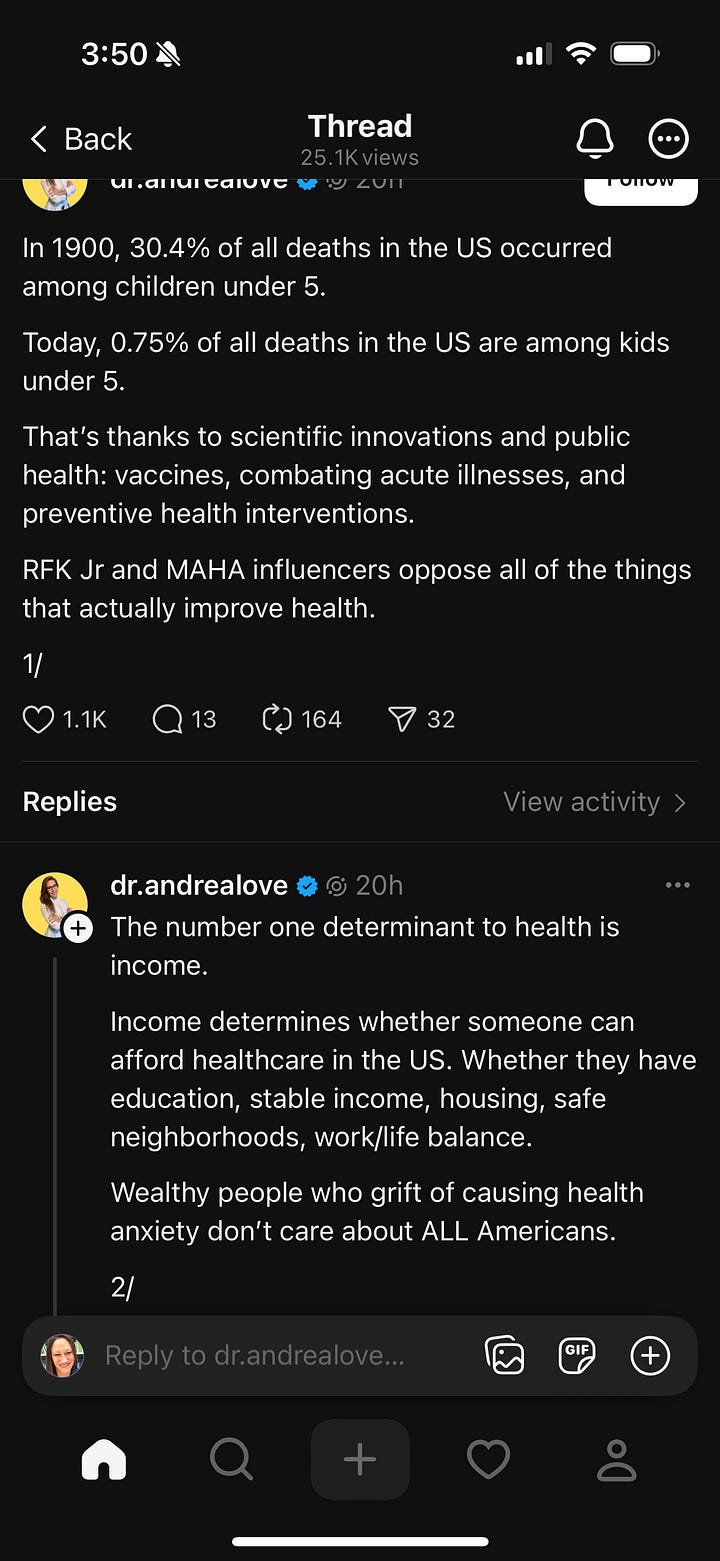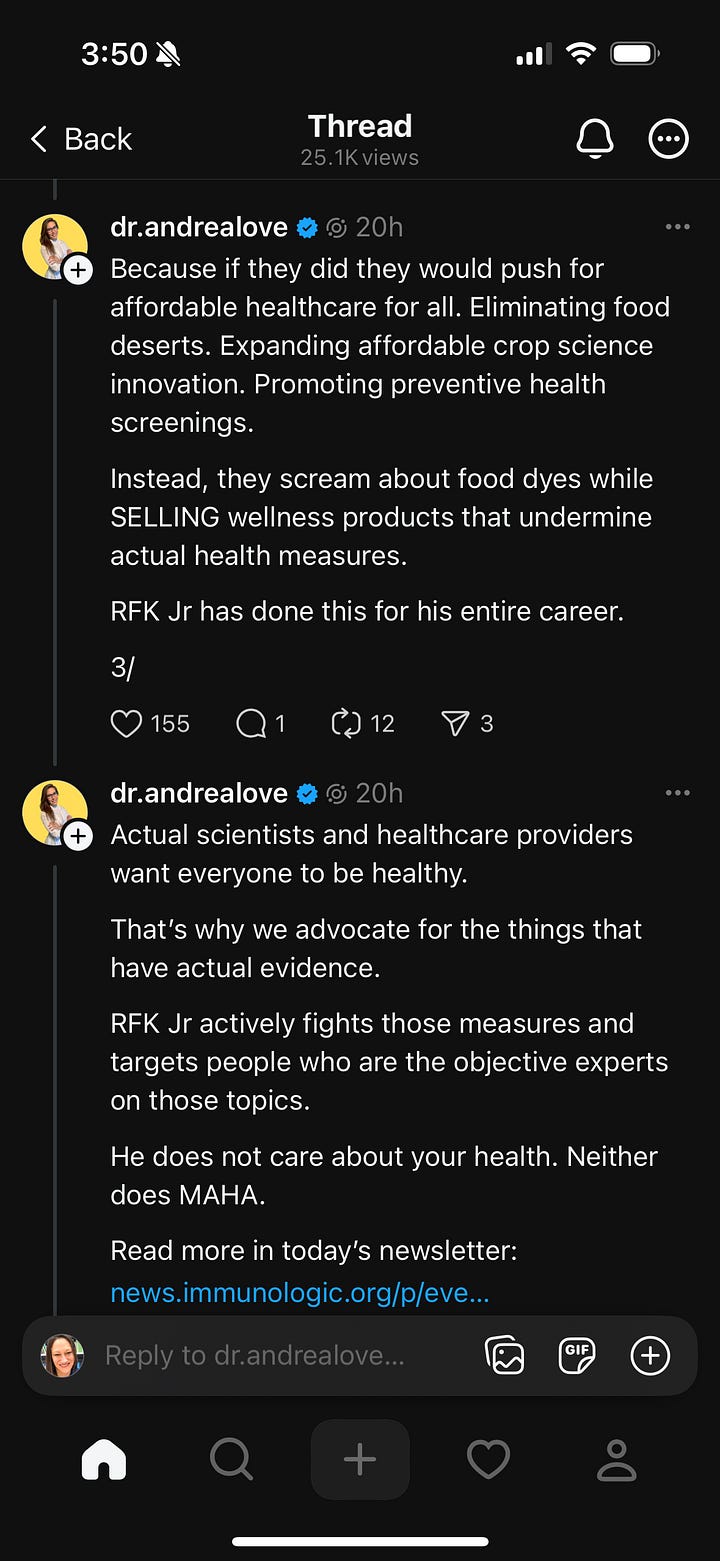Improving NPR's Report on Education
The media's reporting on education is inaccurate and does not give the public a complete picture. If Americans are serious about educating all, we need a change in messaging.
On January 29, NPR published “Nearly 5 years after schools closed, the nation gets a new report card.”
Cody Turner and Jonaki Mehta open the article with:
The good news: In math, many students have made up at least some of the academic ground they lost during the pandemic.
The bad news: In both reading and math, most fourth- and eighth-graders in 2024 still performed below pre-pandemic 2019 levels.
The reactions were different by state. I’m in Illinois, for example, and we celebrated our scores. Most people were angry: what are these schools doing wrong?
Others lamented that perhaps Trump’s approach to destroying the Department of Education could work.
If we, as American citizens, are honestly concerned about low test scores, the narrative around schools, testing, and learning conditions should change.
The complexities.
As a teacher, I know that NPR’s reporting is oversimplified. Test scores are not a simple reflection of what students know and don’t know or what they are capable of learning. They are also not a clear reflection on strong teaching.
Before we report on education and poor test scores, we need reports on healthcare, early intervention, and work hours of parents. Before we report that students failed a test, we need reports on parents not having access to books, public transportation to take their children to the library, or the knowledge to read daily to their children.


Starting the report with schools, when schools did not start the process of educating children, when other factors are at play, is dishonest.
When we deal with humans, we must look at the entire human, not one aspect. Test scores are not equivalent to a financial report for a business. Education is not a business and cannot follow a business model. NPR and other mainstream news outlets seldom address the complexity schools face in teaching students to read or to understand math.
A report on test scores that continues with the teacher-scapegoat narrative might get clicks. It is, however, incomplete.
A buried lead.
After an analysis of the test scores, the final two headings are:
The connection between poverty and performance.
Missing school is getting in the way of learning.
The lead is not that student scores are down, and those two headings show where our nation must improve. The focus that the United States lacks basic support for families which contributes to low test scores should be the message. If the US wants high test scores, this focus on basic support should be coverage from NPR with previous reports—before the release of test scores.
For instance, the cost of healthcare along with the suffering children have is intertwined:
U.S. healthcare spending per capita is almost twice the average of other wealthy countries.
Sick children or children with undiagnosed conditions struggle in school and might not attend school. If parents cannot leave work to take children to doctors or cannot afford therapy or to travel to medical services, children do not perform well on tests. Parents must have fair wages and healthcare for their children.
Major organizations like NPR could (perhaps have a responsibility to) change the conversation surrounding education. For whatever reason, news organizations fail to cover the depth of what public educators deal with, instead only covering the test results.

What news could the media focus on?
A focus on poverty and education.
The United States is one of the wealthiest countries in the world, yet our social safety nets are lacking. How can we address those in poverty and help them in schools?
Childhood poverty is intergenerational and connected to the educational level of parents and caretakers; in fact, 73% of children whose parents have less than a high school diploma live in low-income families.
Instead of opening with a focus on poverty and its connection to education, NPR opened their article about COVID disrupting schools, not the lack of social structures that ensures parents can send well-fed, healthy, supported, and confident children to schools. How does poverty prevent students from achieving an education?
A focus on an uncomfortable conversation.
Educated people have power because they can communicate, question claims, and look for biases.
No, I do not have a weird threshold of education you must achieve to be educated. Do you read books? What community groups do you participate in? Have you looked for answers from experts like historians, scientists, and researchers? Do you believe that people who devote their lives to studying (fill in the blank) have authority in their fields? A degree is not necessary for positively answering any of those questions, but unfortunately, that is normally the test.
Educated people cherish the benefits of knowledge and help other people to be educated. Those with increased literacy and knowledge live longer and have safer, healthier lives. We should want those benefits for our students. Test scores are a tiny piece in this conversation. We need other pieces reported and explored: What stops our students from scoring well?
Does the research make people uncomfortable? The ties between health and education and funding and the destruction of the Department of Education?
On the whole, dependence on federal funding is higher in states that went for Trump.
Maybe. The US is at a crux in its way forward. Showing poor test scores instead of investigating the roots might make for easy reporting.
If the US wants to move forward with high test scores, with an educated citizenry, we must change the discussions surrounding education and test scores. How can we help our students? How can the media change the narrative?
Progressive policies will move this country forward, changing healthcare and adult work hours. We need major news organizations to report the root cause of students’ struggles instead of leading with test results.



